|
|
 |
An independent view of the world
seen from Tokelau
The Independent New York Times
Tokelau, Saturday,
November 1,
2008 Weekend Edition, editor
- contact sumpinein@gmail.com
|
 |
|
|
|
|
INTERNATIONAL CRISIS TO TEST NEW PRESIDENTS
METTLE? |
|
The chairman of a key
Pentagon advisory panel has echoed recent claims
by both Joe Biden and Colin Powell, warning that
the next administration will face an
international crisis within months of taking
office. Michael Bayer, chairman of the
Defence Business Board
and veteran Pentagon consultant announced during
a public meeting late last week that the new
President should “prepare for a likely
first-270-days crisis.” Accordingly, the Defence
Business Board says the new administration
should set a goal to win Senate confirmation of
key Pentagon posts in the first 30 days of the
inauguration, in order to have a full team in
place to deal with such a contingency, an
Inside Defence
report reveals. The incoming administration
“must not wait until June” to get assistant
secretaries confirmed and October for deputy
assistant secretaries to be Senate confirmed,
Bayer’s
briefing
states. “It will not be six months before the
world tests Barack Obama like they did John
Kennedy,” Biden told an audience in Seattle
earlier this month. |
|
 |
|
A UN study says that in financial
terms currently the loss of forest
equals some US$2 to US$5 trillion every
year. Who is going to do something about
all this? Indonesian authorities have pledged
to stop the loss of forests and species
in Sumatra, one of the world's most
ecologically important islands.
Representatives of the island's 10
provinces, national government and the
environment group WWF launched the deal
at the World Conservation Congress.
Sumatra has lost about half of its
forest cover in the last 20 years. It is
home to a number of important and iconic
species such as the tiger, orangutan,
rhinoceros and elephant. The island has
suffered floods and forest fires in
recent years that have been widely
attributed to illegal forest clearance.
Two years ago, President Susilo Bambang
Yudhoyono was forced to apologise to
Singapore and Malaysia when smog from
burning Sumatran forest covered the
neighbouring countries. The need to deal
with these issues appears to have played
a big part in persuading the authorities
to act. "In the rainy months, we are
seeing landslides and flooding more
often, and it is time to make a real
change," said Indonesia's deputy
environment minister Hermien Roosita at
a news briefing here. "Every governor
from the 10 provinces and four
(national) ministries have signed this
monumental commitment to ecosystem
restoration of the island and protecting
the remaining natural forest." More than
13% of the island's forests lie on peat,
which contain vast amounts of carbon
that would be lost to the atmosphere if
the trees were removed, accelerating
climate change. "When you look at the
flora and fauna in this area and the
rate of loss that's going on, this is a
substantial commitment to protect and
restore forests," said Gordon Shepherd,
WWF's director of global policy. The
government has already regulated to stop
clearance of virgin forest for palm oil
plantations - grown for food, industry
and biofuels - but the government
acknowledges the ban may not be
completely effective. |
|
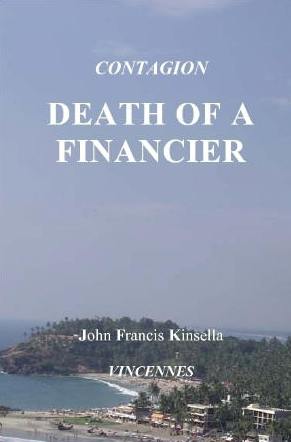
|
Read DEATH OF A
FINANCIER by JOHN
FRANCIS KINSELLA |
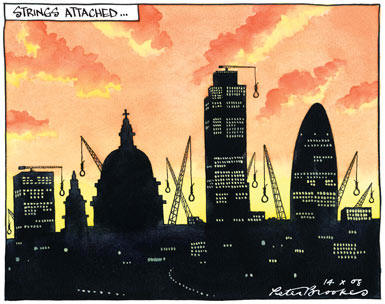
|
Tom Barton, a City
mortgage broker, decides
to quit his business in
the wake of the subprime
crisis and arrives in
Kovalam, in the south of
India. In the Maharaja
Palace he finds himself
in the company of
holiday makers from the
UK, Scandinavia and
Russia. Stephen Parkly,
the CEO of a successful
City bank, and his young
wife Emma are taking a
well earned year end
break. Parkly falls
gravely ill with a
mysterious infection,
whilst back in the City,
unknown to him his
mortgage and investment
bank, West Mercian
Finance is in grave
difficulties. Ryan
Kavanagh, a doctor,
comes to Emma’s aid with
the help of Barton,
after an attempted
cover-up by the Indian
authorities, who fear
for their tourist
industry and more
especially medical
tourism, as the disease
threatens the resort
with the tourist season
in full swing. Thousands
of British tourists
enjoying the sun are
unaware of the pending
disaster, many are
equally unaware their
savings about are to be
wiped out in the West
Mercian collapse. |
|
Some are
still
spending.... |
|
|
|
|
JUST FOUR MORE DAYS
TO VOTING |

|
Barack Obama,
the
self-appointed
wind of change,
aims to blow
away entrenched
voting patterns
by becoming the
first Democrat
candidate for
more than half a
century to win
Florida without
having roots in
one of the
former
Confederate
states. Since
1950, only three
Democrats have
carried Florida:
Bill Clinton
(Arkansas) 1996,
Jimmy Carter
(Georgia) 1976
and Lyndon
Johnson (Texas)
1964. Their
victories here
helped propel
all three to
power in
Washington.
Obama is many
things, but Old
South he is not. |
|
|
|

|
The Wall
Street Crash
of 1929 was
the most
devastating
stock market
crash
in the
history of
the
United
States,
taking into
consideration
the full
extent and
longevity of
its fallout.
The initial
crash
occurred on
Black
Thursday (October
24,
1929),
but it was
the
catastrophic
downturn of
Black Monday
and Tuesday
(October
28
and
October 29,
1929)
that
precipitated
widespread
panic and
the onset of
unprecedented
and
long-lasting
consequences
for the
United
States.
The
Roaring
Twenties,
which was a
precursor to
the Crash,
was a time
of
prosperity
and excess
in the city,
and despite
warnings
against
speculation,
many
believed
that the
market could
sustain high
price
levels. |
|
|
DUBAI
TREMBLES |
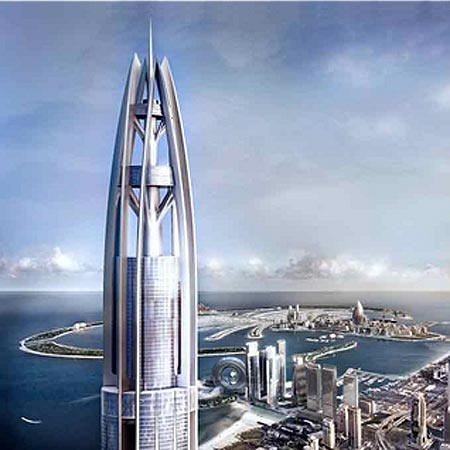 |
|
With
its kilometre high
project Dubai prides
itself on its shiny
image, something that
the city has spent the
last decade perfecting
and it is not about to
let all that hard work
go to waste, global
recession or not. So, if
anywhere can put a
positive spin on
economic meltdown, then
Dubai will have a good
go. So it was that while
the rest of the world
waited anxiously for
news on bank bailout
plans, Dubai announced
it would built the
world's tallest tower.
Dubai is anxious to
preserve its image of
opulence, whatever the
stocks say. As housing
prices were wobbling
elsewhere, the huge
annual property
exhibition reported
remaining busy and
potential investors were
encouraged by a survey
saying real estate
prices in the Middle
East will significantly
out perform all other
regions. No-one sensible
is now predicting the
continuation of the
exponential price
increases that have been
seen in Dubai since it
opened its property
market to foreigners,
but there is a belief
prices will continue to
rise more steadily - not
least because rents are
extortionate and the
increasing number of
people moving to the
city all need somewhere
to live. |
|
|
|

|
Bond's new adventure in
Quantum of Solace has
edgy close-ups of Daniel
Craig's granite features
give way to a spectacular
high-speed chase around an
Italian coastal road.
Bullets fly, glass
splinters, cars crunch, in a
scene that - like many of
the film's best - owes much
to the quick-fire editing of
the Bourne thrillers. By the
time the opening credits
come along, playing out to
Jack White and Alicia Keys's
punchy title song, you
realise you've barely
breathed for five minutes.
Thereafter, Craig's second
outing as the famous
so-called "spy" - actually,
when you think about it, an
assassin - turns out to be a
tale of revenge. And not for
the first time in the
franchise: Timothy Dalton
spent the whole of 1989's
Licence to Kill in pursuit
of the man who murdered the
wife of his CIA chum Felix
Leiter. In this much darker
film, picking up from where
Casino Royale left off, 007
finds himself after two
people: the man who fatally
betrayed Vesper Lynd, the
woman he loved; and Dominic
Greene (bullfrog-eyed
Mathieu Amalric), a big
player in the sinister
organisation that
blackmailed her, now
striking a shady deal in
some Bolivian desert. |
|
|
QUEEN LIZ VISITS GOOGLE |
 |
|
|
The
map shows hectares' worth consumed in goods and
services |
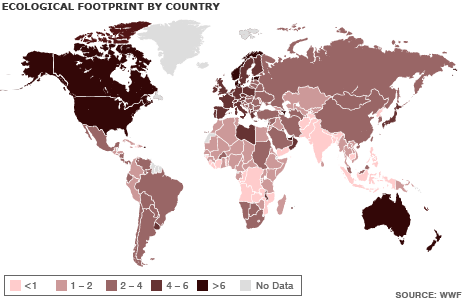 |
|
The planet is headed for an
ecological "credit crunch", according to
a report issued by conservation groups.
The document contends that our demands
on natural resources overreach what the
Earth can sustain by almost a third. The
Living Planet Report is the work of WWF,
the Zoological Society of London and the
Global Footprint Network. It says that
more than three quarters of the world's
population lives in countries where
consumption levels are outstripping
environmental renewal.
This makes them "ecological debtors", meaning that they are drawing
- and often overdrawing - on the
agricultural land, forests, seas and
resources of other countries to sustain
them. The report concludes that the
reckless consumption of "natural
capital" is endangering the world's
future prosperity, with clear economic
impacts including high costs for food,
water and energy. "If our demands on the
planet continue to increase at the same
rate, by the mid-2030s we would need the
equivalent of two planets to maintain
our lifestyles," said WWF International
director-general James Leape. Dr Dan
Barlow, head of policy at the
conservation group's Scotland arm,
added: "While the media headlines
continue to be dominated by the economic
turmoil, the world is hurtling further
into an ecological credit crunch." The
countries with the biggest impact on the
planet are the US and China, together
accounting for some 40% of the global
footprint. The report shows the US and
United Arab Emirates have the largest
ecological footprint per person, while
Malawi and Afghanistan have the
smallest. "The events in the last few
months have served to show us how it's
foolish in the extreme to live beyond
our means," said WWF's international
president, Chief Emeka Anyaoku.
"Devastating though the financial credit
crunch has been, it's nothing as
compared to the ecological recession
that we are facing." He said the more
than $2 trillion (£1.2 trillion) lost on
stocks and shares was dwarfed by the up
to $4.5 trillion worth of resources
destroyed forever each year. The
report's Living Planet Index, which is
an attempt to measure the health of
worldwide biodiversity, showed an
average decline of about 30% from 1970
to 2005 in 3,309 populations of 1,235
species. An index for the tropics shows
an average 51% decline over the same
period in 1,333 populations of 585
species. |
|
|
|
|
|
Oil Collapse: Will it
last? |
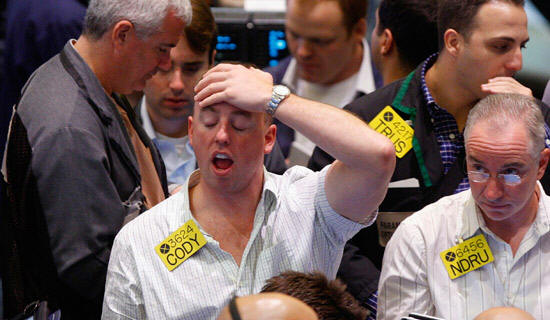 |
|
After surging to record
levels this summer, oil
prices have suffered a
dizzying collapse in
recent months, echoing
the darkening prospects
of the global economy.
Within three months,
drastic swings drove oil
prices from their peak
of $147.27 a barrel to
less than $65 a barrel.
Oil industry analysts at
Goldman Sachs, who had
raised the possibility
that prices could reach
$200 this year, now
believe that oil could
drop to $50 a barrel in
the event of a
global recession. While
consumers can cheer the
drop, producers have
been alarmed at the
sudden downturn in their
fortunes. Fears of a
global slowdown have
kicked off a down cycle
in the oil sector: It is
unclear how long it will
last and how low prices
will go. As oil gets
caught in the wild
gyrations of the
financial meltdown,
three major questions
loom over the oil
markets for next year.
What will happen to oil
consumption in the
United States and in
China? How will
producers respond to
lower prices? Can the
oil cartel OPEC stop the
slide in prices? |
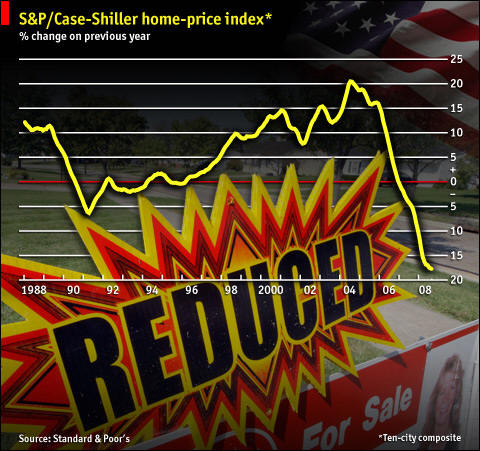 |
|
|
WHO'S
GOING DOWN
THE TUBE |
 |
|
|
|
Politicos having
fun on oligarch's yacht whilst world crashes |
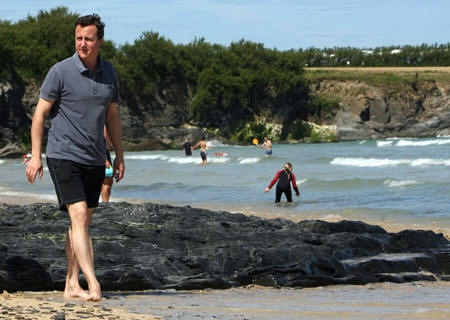 |
|
Yachts
Champagne and Holidays |
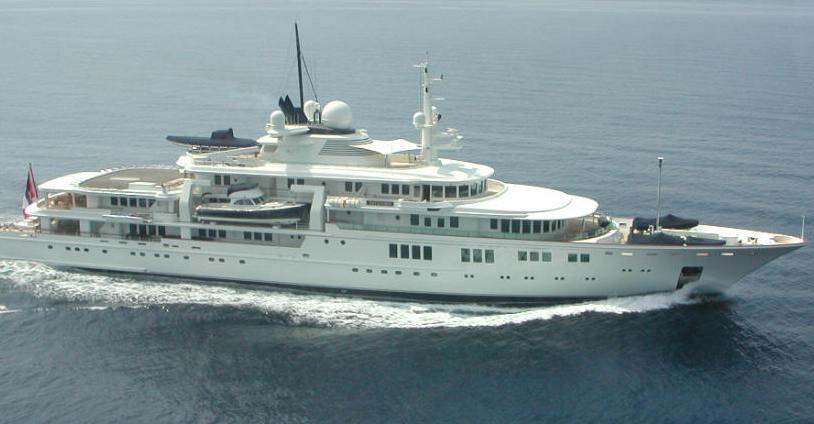
| David Cameron was labelled "Three
Yachts" last night after it emerged that
he spent a second summer holiday
boat hopping in the lap of luxury. The
champagne-drinking Med image is in stark
contrast to the one he portrayed when he
was snapped in Cornwall on a
bucket-and-spade week. Mr Cameron accepted free flights to
visit media boss Rupert Murdoch on his
yacht off Greece on August 16. He also had dinner on the Elisabeth
F, owned by Matthew Freud, the PR guru
husband of Mr Murdoch's daughter
Elisabeth. Then Mr Cameron travelled on free by
private plane for seven days on a
£21,000-a-week yacht touring the Turkish
Riviera. He was holidaying with 74
family and friends in a flotilla of
boats each with a chef, captain and crew
hands. |
|
|
|
|
|
Since food prices began to rise
100 million more people have been pushed into poverty,
according to the World Bank, with as many as two billion
on the verge of disaster. Almost half the world's
population, let's remember, live on less than $2.50 per
day. Millions die annually of hunger and starvation, and
more than a billion do not have access to fresh water. |
With the world financial crisis
these numbers are poised to rise dramatically with
population growth, dwindling natural resources and
higher consumer prices across all goods and services. So
as the stock market tumbles and the world economy
falters, it's important to remember that it's more than
financial losses we are talking about, it's the loss of
life. |
|
|